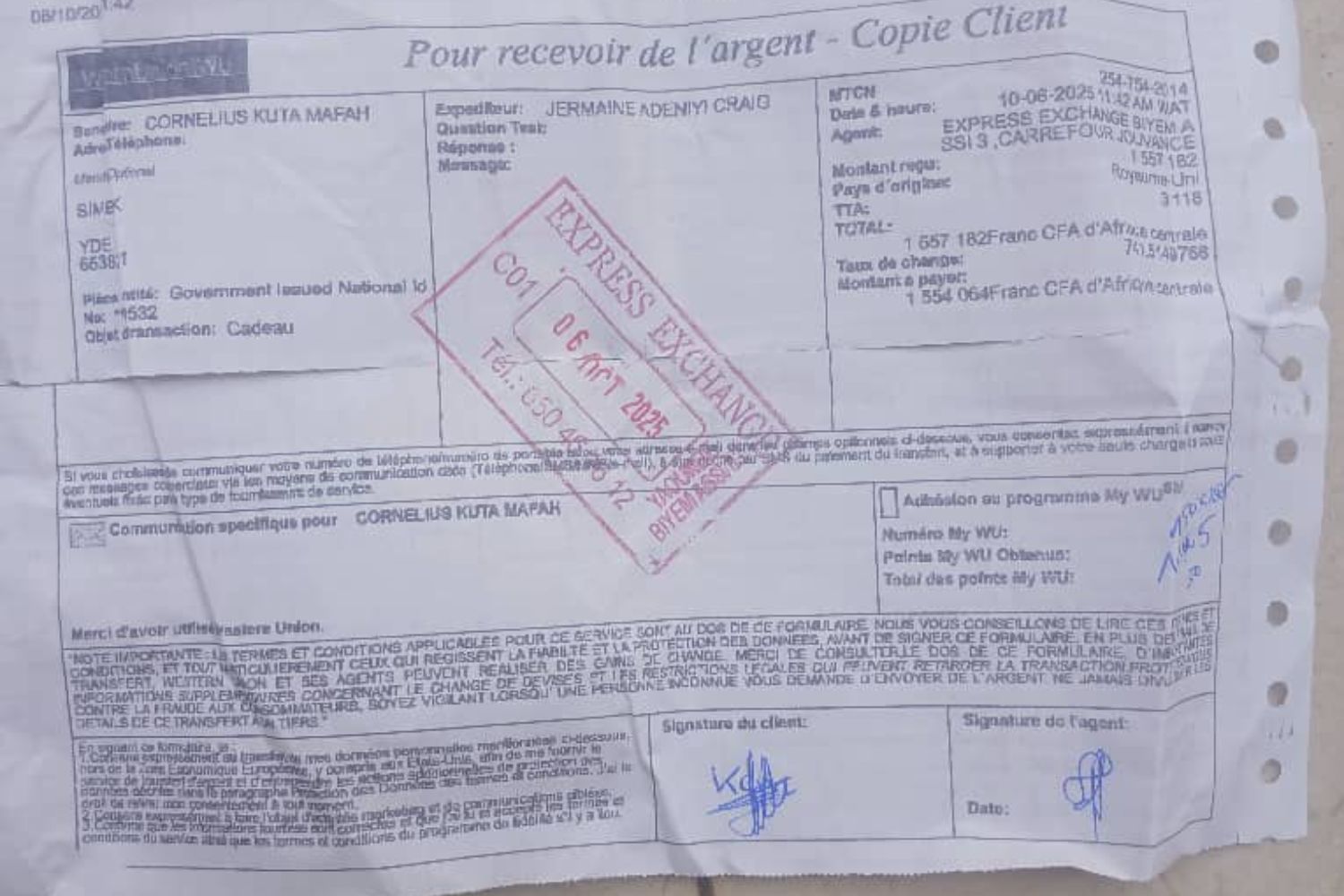Restoring soil and livelihoods in Cameroon through youth-led regenerative farming scholarships
Go back
£2,100
A nine-month pilot project in Ngoumou and Bankomo, Cameroon, supporting marginalised young women to train in regenerative agriculture and business skills.
Through classroom lessons, hands-on farming, mentorship, and startup support, scholars will launch their own agro-enterprises while restoring 10 hectares of degraded land and improving food security for 5,000+ households.
- Region 🇨🇲 Cameroon
- Sector Agriculture
- Beneficiaries 5
- Stage Pilot
This project is led by Kuta Cornelius, founder of the Wandusoa. For years, Kuta informally trained smallholder farmers and displaced youths in sustainable farming, driven by a simple conviction: healthy soil is the backbone of healthy communities.

With this project, we are backing Kuta’s leadership, providing scholarships for displaced youth and a model that connects livelihoods with ecological restoration.
Why this matters
Degraded soil is undercutting food security and livelihoods across Cameroon. For displaced and low-income families, the stakes are immediate: unreliable harvests, rising food costs, and few pathways into dignified work. Women often carry the heaviest burden yet have the least access to tools, training, and finance.

What the project will change
For young women, this project will be life-changing. Instead of seeing displacement, poverty, or lack of opportunity as the end of their story, they will gain tools, knowledge, and startup capital to grow something new.
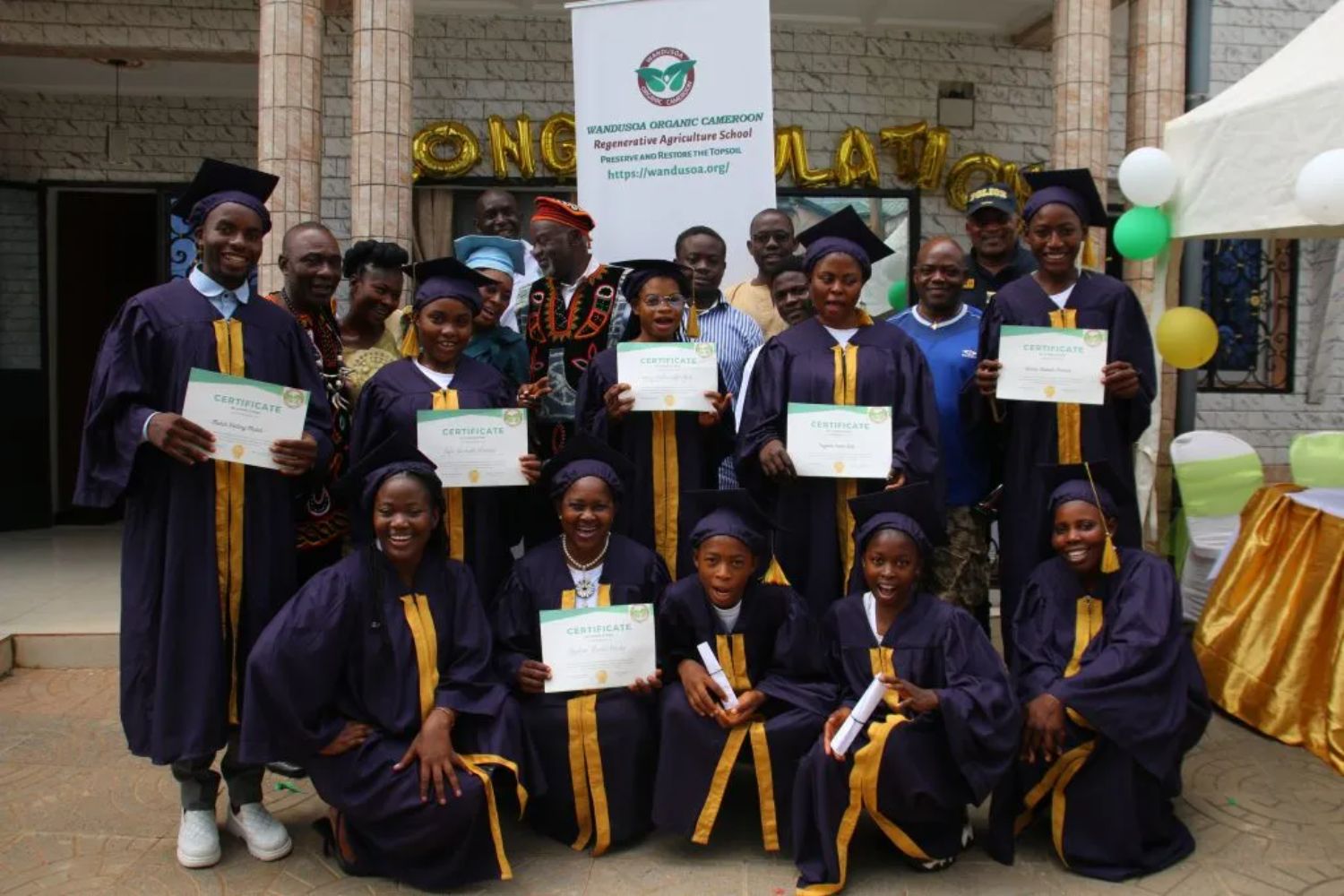
For the wider community, these young women become multipliers—restoring plots, modelling climate-smart practices, and sharing knowledge with neighbours. As graduates move into the three-month mentorship phase, they’ll develop viable plans to launch enterprises on Wandusoa-linked land, contributing to healthier soils, steadier harvests, and more resilient local food systems. Families will have greater access to affordable, nutritious food. Ten hectares of degraded land will be restored, improving biodiversity and climate resilience.
Over time, these graduates will become local leaders, shifting practices, mindsets, and futures from extractive to regenerative.
Technical stuff
The Details
- Scholarships awarded 5
- Students graduated 0
Updates
From the field
20 scholars in Cameroon begin digital entrepreneurship training alongside dry season farm preparation

Posted 9 Feb 2026
We successfully registered all 20 scholars on the Enterprise Adventure app, starting the final three months of the programme where they'll each design a business plan. Alongside this, we continued intensive fieldwork to stay ahead of the dry season, with an early-morning watering schedule for 100 ridges and preparing the nursery for spinach, huckleberry, and other vegetable seeds. Despite limited access to smartphones and slow internet connectivity, scholars progressed by sharing devices and supporting one another through peer mentoring.
This phase has strengthened the scholars’ confidence as they begin to see themselves not only as farmers, but as entrepreneurs connected to a wider global community. Early work with digital tools is helping them shape business ideas that link food production, soil restoration, and local food security. With graduation three months away, we'll continue digital training and one-on-one mentorship to ensure every scholar completes a practical, launch-ready business plan.
We spent 68,000 XAF this period: 35,000 XAF on daily meals for the scholars during fieldwork and training, 15,000 XAF on seeds for the nursery, 10,000 XAF on internet data for the Enterprise Adventure app, and 8,000 XAF on transport for manure and tools.
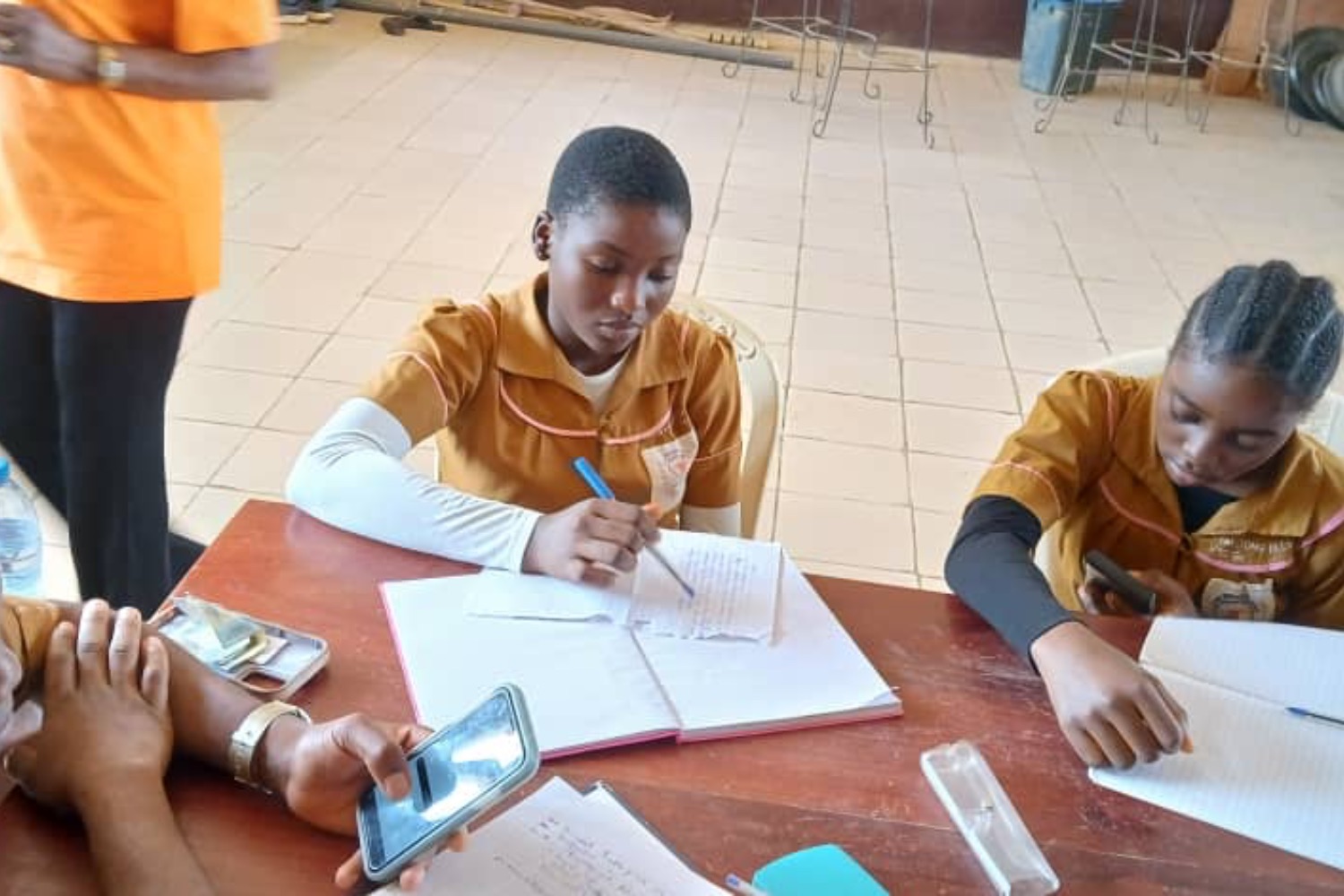
Registered 20 scholars on the Enterprise Adventure app to begin digital entrepreneurship training
Maintained a daily early-morning watering schedule for 100 ridges during the dry season
Prepared nursery beds and organic inputs for spinach, huckleberry, and vegetable seeds
Conducted one-on-one business mentorship sessions
Used mulching and adjusted work hours to protect soil health and scholars' wellbeing
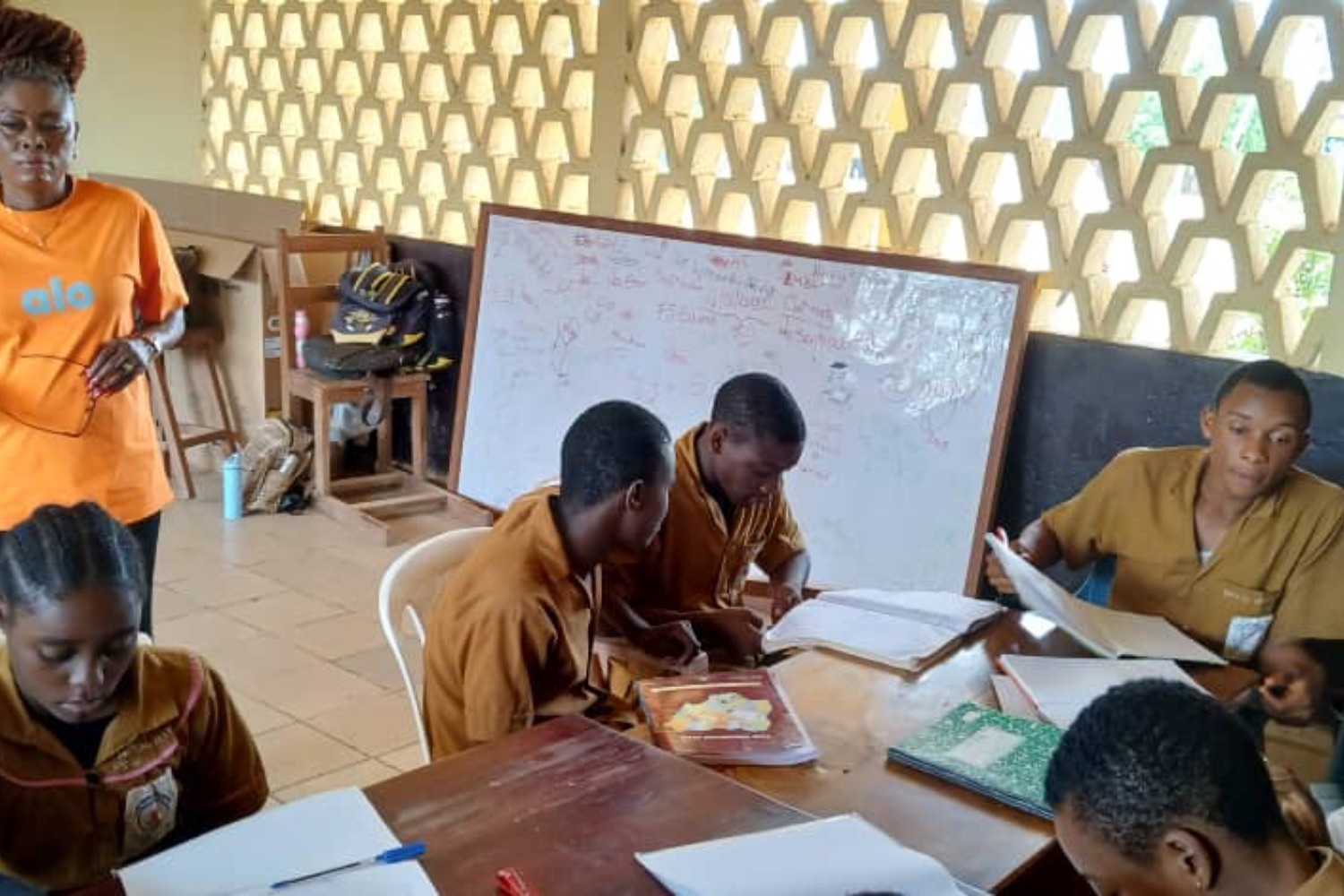
Maliki, a project scholar, shared:
I used to think my world had become very small because of the things I lost, but since signing up for the Enterprise Adventure, I feel like I am standing on a big stage. Seeing students from other schools across the world doing the same missions as me makes me feel powerful. I’m not just growing spinach; I am designing a business that the whole world can see, and for the first time, I can imagine myself as a boss, not just a survivor.
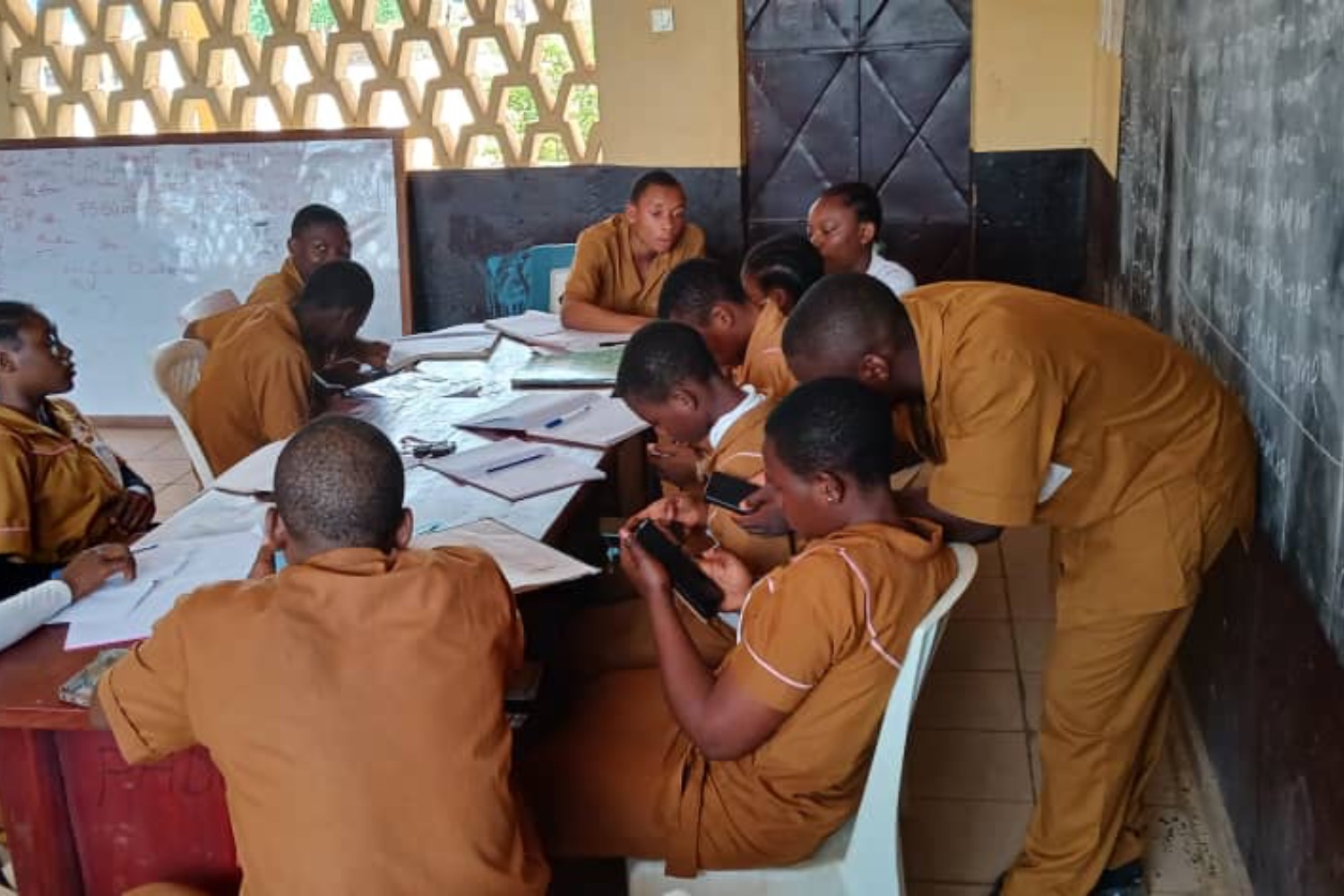
School Enterprise launched with 20 scholars cultivating 1 hectare in Bamenda

Posted 14 Jan 2026
In the last two weeks, Wandusoa hit a major milestone by enrolling five new scholars, bringing us to a full cohort of 20 internally displaced young women. We officially launched our School Enterprise, moving from theory into active cultivation of organic spinach, huckleberry, and garden eggs. Despite the peak dry season, the team cleared and prepared one hectare of degraded land, constructing specialised ridges designed to retain moisture. We also integrated our new Accountant to manage finances, including bulk food purchases and startup kits, ensuring professional transparency as we transition from enrolment into full-scale production and soil restoration.
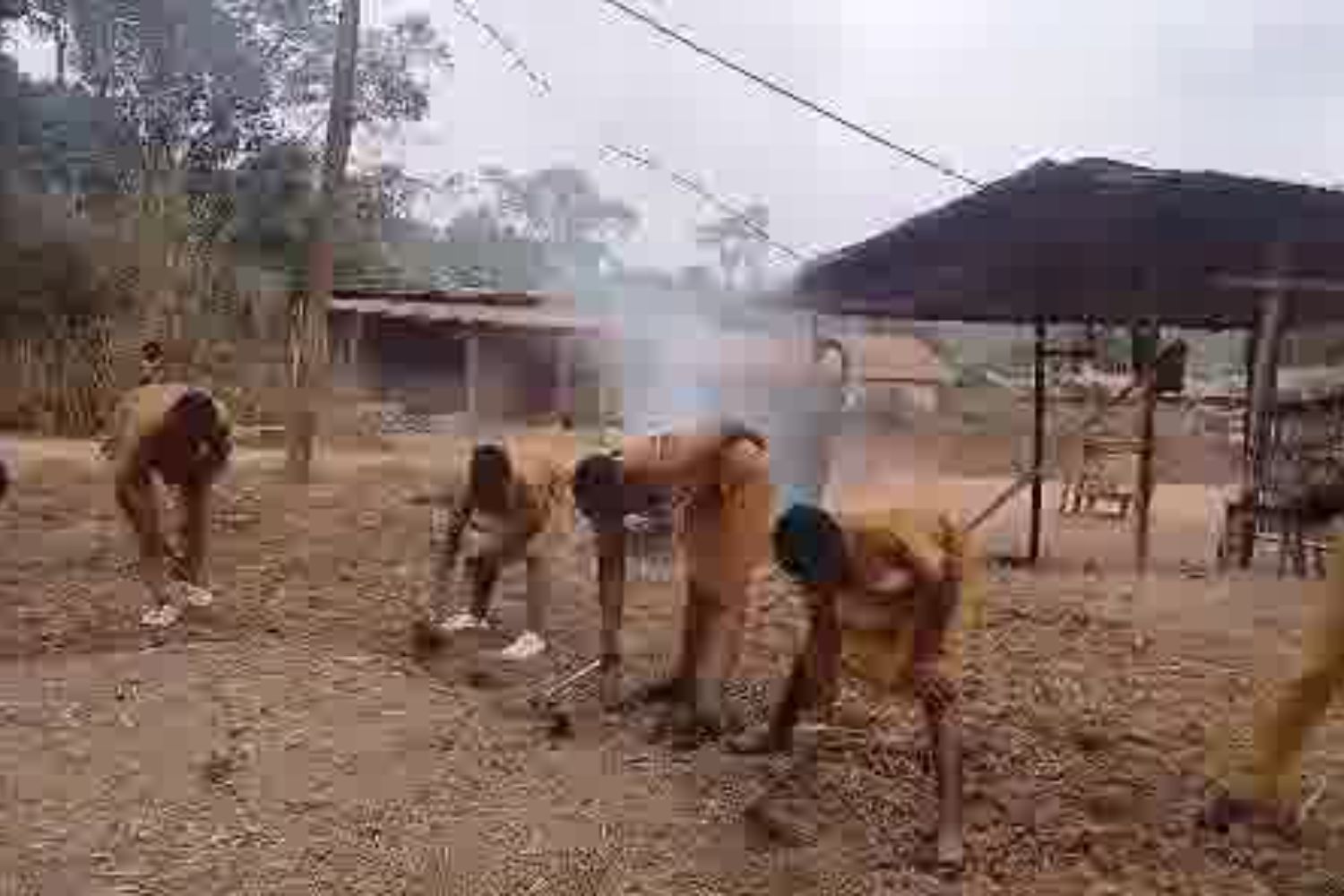
Activities:
Enrolled five additional scholars to reach a full cohort of 20
Conducted a re-orientation assembly to rebuild momentum after the holiday break
Cleared and tilled one hectare of degraded land near the campus
Constructed over 100 specialised ridges to retain moisture during the dry season
Launched cultivation of spinach, huckleberry, and garden eggs using off-season techniques
Shifted fieldwork to early mornings to mitigate heat exhaustion
Implemented mulching and water-rationing to protect soil and crops
Integrated a new Accountant to manage purchases and startup kit expenses
In the coming weeks, we’ll begin tracking crop growth and preparing for our first market harvest.
Students in Mfou submit business plan and prepare 0.5-acre pilot farm

Posted 21 Dec 2025
This update covers student achievements at GBHS Mfou during a busy exam period as part of our Regenerative Agriculture School project.
Our student team finalised and submitted their 2025 School Enterprise Challenge business plan, incorporating revised sections on market research, financials, and impact metrics. They also secured the school canteen as the first buyer for their upcoming harvest. A 0.5-acre plot has been cleared and prepared for growing spinach and huckleberry.
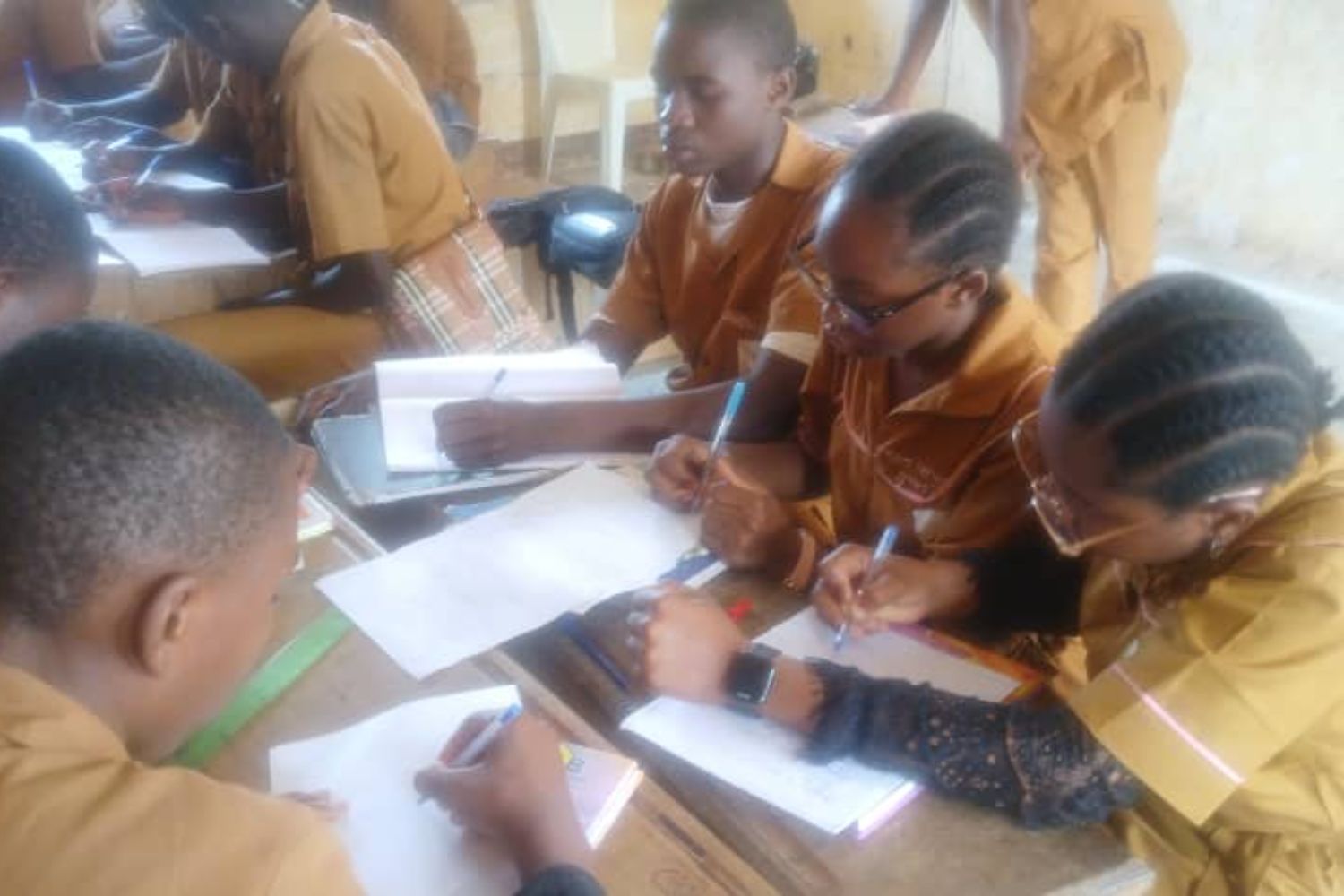
Activities:
Finalised and submitted business plan for School Enterprise Challenge 2025
Updated business plan with market research, financial projections, and impact metrics
Secured school canteen as buyer for spinach and huckleberry harvest
Cleared and prepared 0.5-acre pilot plot for planting
Received first draft of Ecological Learning Centre design and revised for compliance
Designed WhatsApp campaign for January 2026
Guided students through peer reviews and expert consultations
Practised ICT and financial literacy by developing business plan summaries
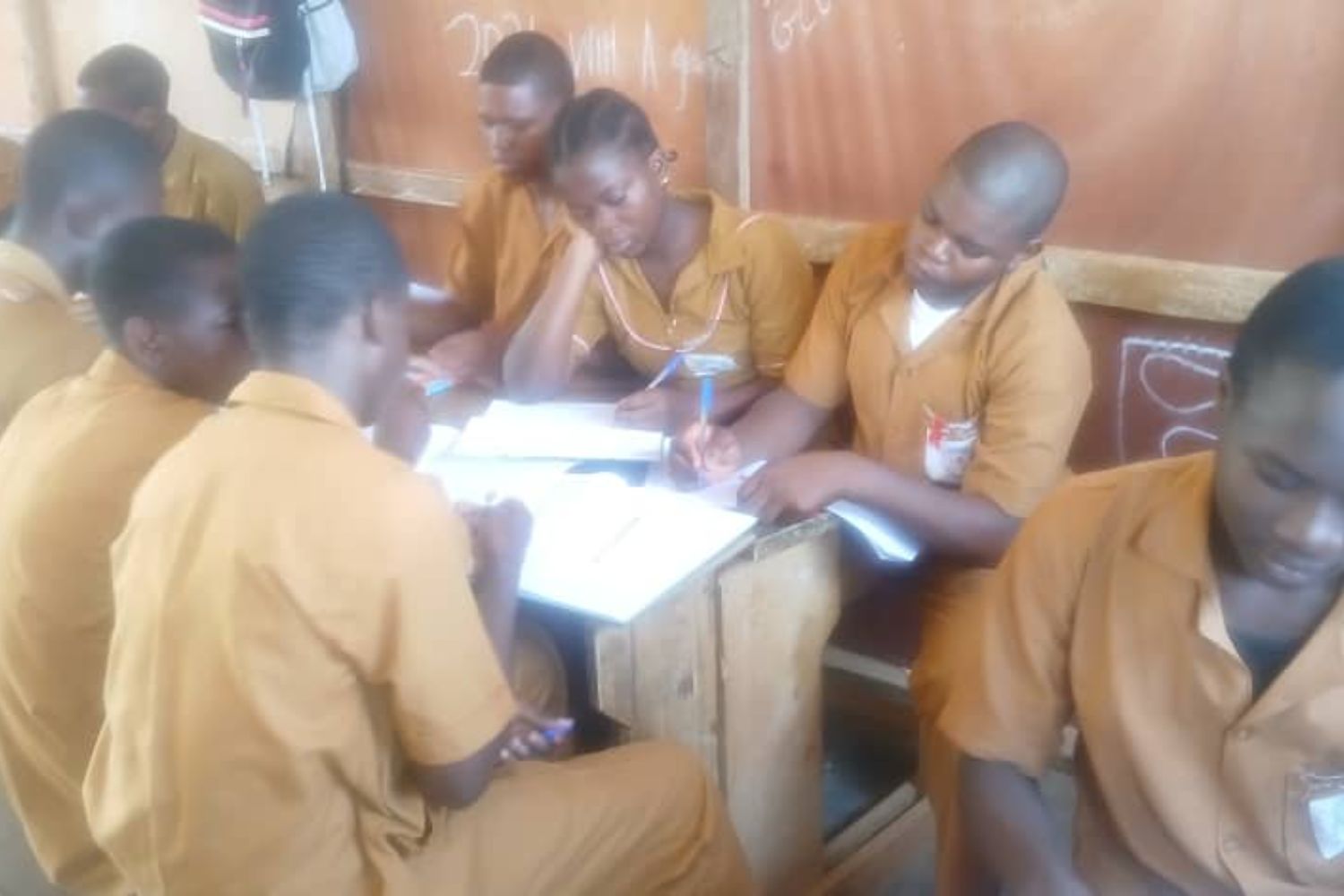
20 participants in Cameroon develop regenerative agriculture business plans

Posted 27 Nov 2025
We’re pleased to share significant developments in our regenerative agriculture programme.
The initiative has grown to 20 participants, welcoming five new members and an additional teacher to strengthen our training capacity. Teams are actively developing business plans for sustainable palm oil production and traditional Meyanga processing, with participants taking on specialised roles in production, quality control, and marketing.
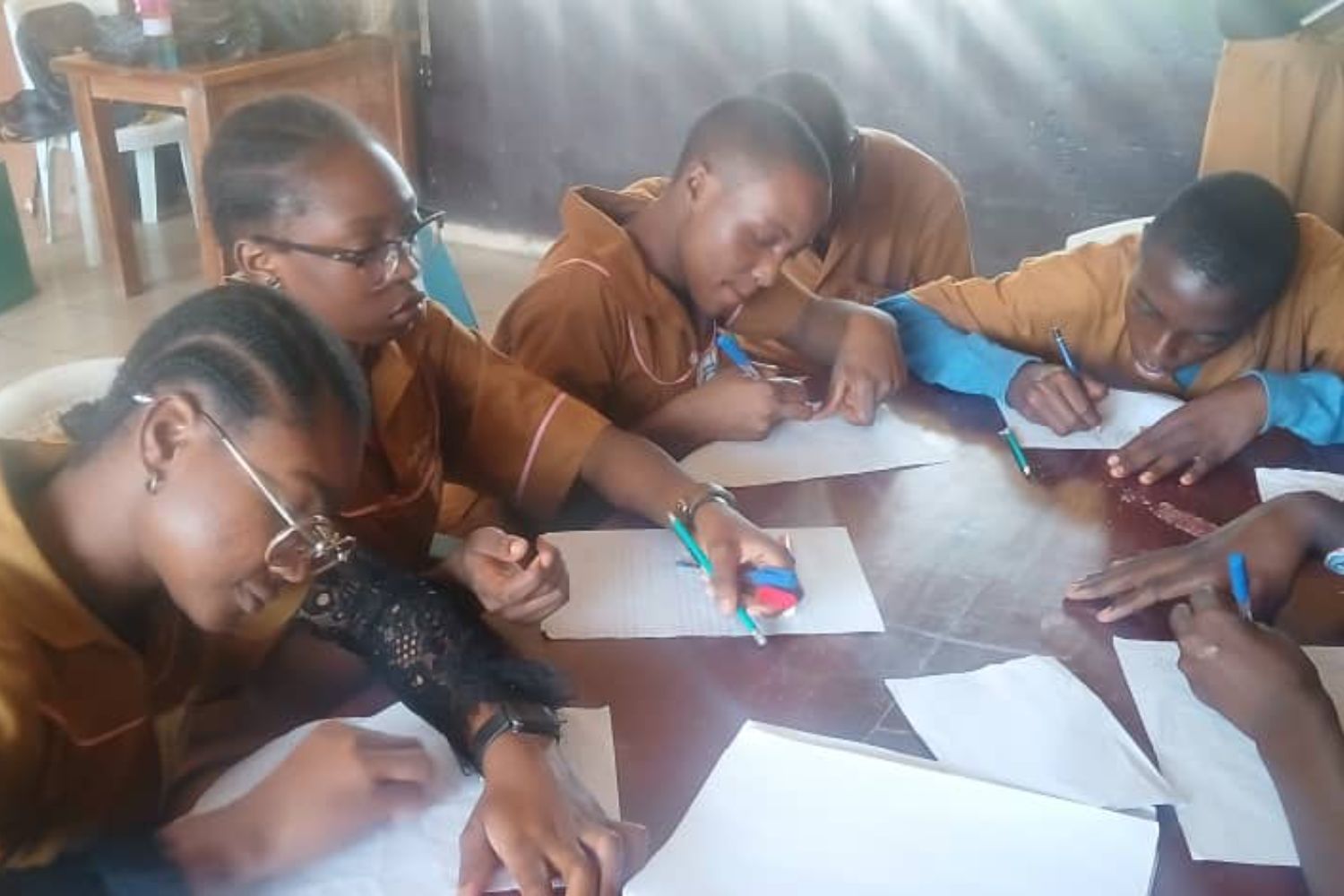
The programme launch required strategic investments totalling 45,000 FCFA, covering essential didactic materials (20,000 FCFA), teacher transportation (10,000 FCFA), and participant refreshments (15,000 FCFA) to ensure productive sessions.
As we move forward, priorities include prototyping the proposed agricultural businesses and adapting our mentorship approach to accommodate our growing participant base. The enthusiasm from new joiners and continued community interest confirm the programme’s relevance in blending ecological restoration with economic opportunity.
Activities:
Welcomed five new participants and one additional teacher, reaching 20 scholars total
Explored business ideation focused on traditional practices: sustainable palm oil and Meyanga processing
Participants self-assigned roles in production, quality control, and marketing
Began preparing pilot plots to test sustainable ventures
Next steps include prototyping the business ideas and evolving our mentorship approach to meet the needs of a larger cohort.
15 displaced girls in Mfou begin regenerative farming training

Posted 17 Nov 2025
Summary
Between 1–14 November, the program welcomed four new internally displaced girls, bringing the total number of scholars to 15. All participants are enrolled at Government High School Mfou. To supplement their studies, they take part in regenerative farming and entrepreneurship training through Wandusoa.
This period also saw the first business brainstorming session through the School Enterprise Challenge, as well as key progress on the design of the Ecological Learning Centre, developed in collaboration with Journeyman International and architect Cédric Delbeke. The team also welcomed advisor Paul Kronenberg (Kanthari) to support eco-friendly construction planning.
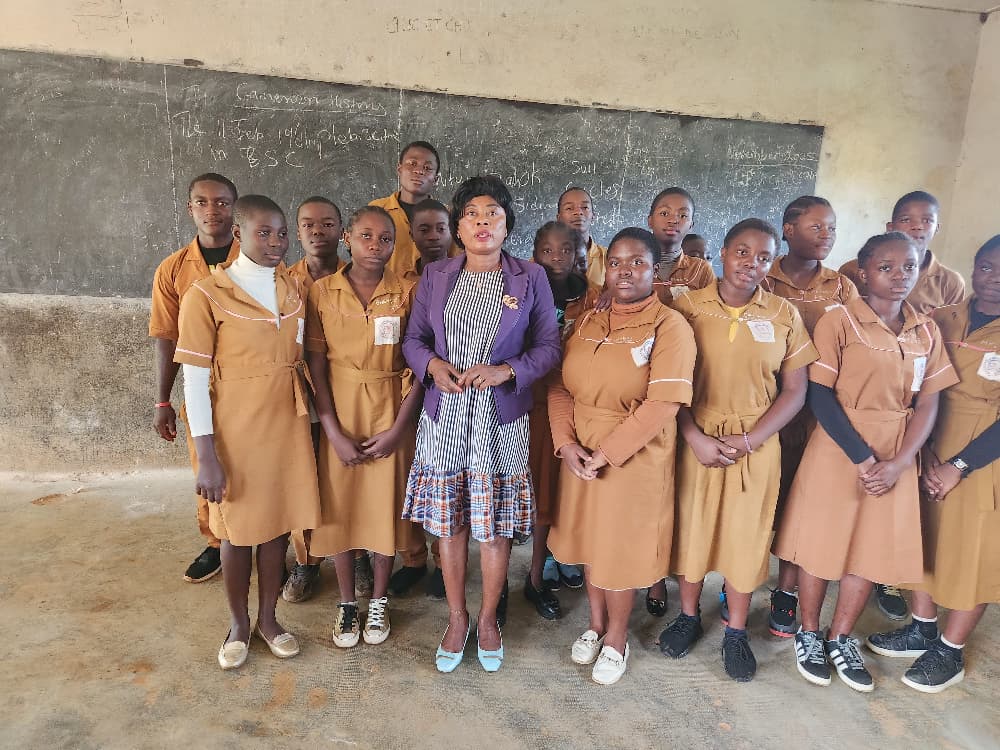
With the enrollment of four additional girls, the program now supports 15 scholars—each gaining access to education, daily meals, and practical livelihood training. Through household-level knowledge sharing, the initiative is indirectly benefiting more than 15 families.
This program is my first chance to learn skills that can help me feed my family.
— New Scholar
Activities
1. Participant enrollment and education integration
Registered four additional internally displaced girls into the program
Formalised a partnership with Government High School Mfou to host all project activities
Enrolled all 15 scholars as full-time students at the school
2. Program kickoff
Held the first classroom assembly to introduce regenerative farming and entrepreneurship goals
Began business idea brainstorming sessions
Integrated the cohort into the School Enterprise Challenge for structured business training
3. Ecological Learning Centre development
Conducted an online design meeting with Journeyman International and architect Cédric Delbeke
Reviewed the first draft of the Wandusoa Ecological Learning Centre design, focusing on eco-friendly materials and community-oriented layouts
Welcomed Paul Kronenberg (Kanthari) into the working group to advise on environmentally responsible, low-impact construction
4. Community and institutional collaboration
Held follow-up meetings with school administrators to align academic and project schedules
Secured classroom space and farm plots for hands-on practical sessions
5. Monitoring and next steps
Documented attendance and early engagement levels of all 15 scholars
Planned field visits to map degraded land for upcoming restoration pilot plots
Challenges
The program faced significant disruptions in the originally planned locations of Bankomo and Ngoumou due to ongoing political instability. Community mobilisation and field activities were affected, prompting a strategic relocation to Mfou to ensure safety and continuity.
The move allowed us to:
Maintain uninterrupted training and operations
Build a reliable partnership with Government High School Mfou
Expand engagement to the Mfou community
Protect scholars from instability-related risks
This adaptive approach has enabled the program to continue delivering its planned outcomes while preserving quality standards. The team will keep monitoring conditions in the initial project areas for future expansion once stability returns.
Finances
No finances were used during this period.
4 more students join the October 2025 cohort in Cameroon

Posted 28 Oct 2025
Over the past two weeks, we’ve made steady progress across key areas of our project, despite disruptions caused by Cameroon’s political climate. We enrolled 4 additional participants, bringing our October 2025 cohort to 11, advanced the pre-design work on the Wandusoa Learning Ecological Centre, and joined the School Enterprise Challenge platform to strengthen our practical business education offerings.
Developments:
We expanded our October 2025 cohort to 11 participants and continued outreach to fill the remaining spots. This growth keeps us on track to welcome a full group of learners.
Activities:
The pre-design phase of the Wandusoa Learning Ecological Centre has progressed well. We’ve worked with Journeyman International and architect Cédric Delbeke to develop an eco-friendly, community-centred design. Informal discussions with local residents have provided useful input to guide the process.
We also successfully registered on the School Enterprise Challenge platform. This milestone connects our team with global resources, mentors, and fellow educators, helping us deliver hands-on entrepreneurship education.
Challenges:
The Cameroon Presidential Elections on October 12th and the delayed results created nationwide political tension. It became unsafe to gather participants or hold community meetings, so we had to pause operations. We adapted by postponing activities and shifting to one-on-one engagements where possible. Now that conditions have stabilised, we’re cautiously resuming.
Finances:
No finances were spent during this period.
7 youth enrolled and tools secured for the farming program in Mbankomo

Posted 16 Oct 2025
The Restoring Soil and Livelihoods project has made strong progress over the past two weeks, despite heavy rains that slowed transportation and site access. Our team successfully completed critical pre-design assessments at the Mbankomo Permanent Site, ensuring the Wandusoa Learning Ecological Centre will reflect the local context and support regenerative farming. These steps are vital in creating a space where marginalised youth, especially internally displaced girls, can grow as regenerative farmers and entrepreneurs.

We’ve enrolled 7 participants for the October 2025 cohort so far, including 5 scholarship recipients supported by Kwanda, from internally displaced backgrounds. With a maximum of 20 participants, we’re actively working to fill the remaining spots by the end of the month. Notably, this cohort includes the first participants from the Ngoumou and Mbankomo communities, marking a key moment in deepening local engagement.
Our collaboration with Journeyman International and architect Cédric Delbeke remains strong, with a shared commitment to designing a culturally resonant and eco-friendly learning centre. This partnership is key to ensuring the project’s long-term sustainability and community ownership.
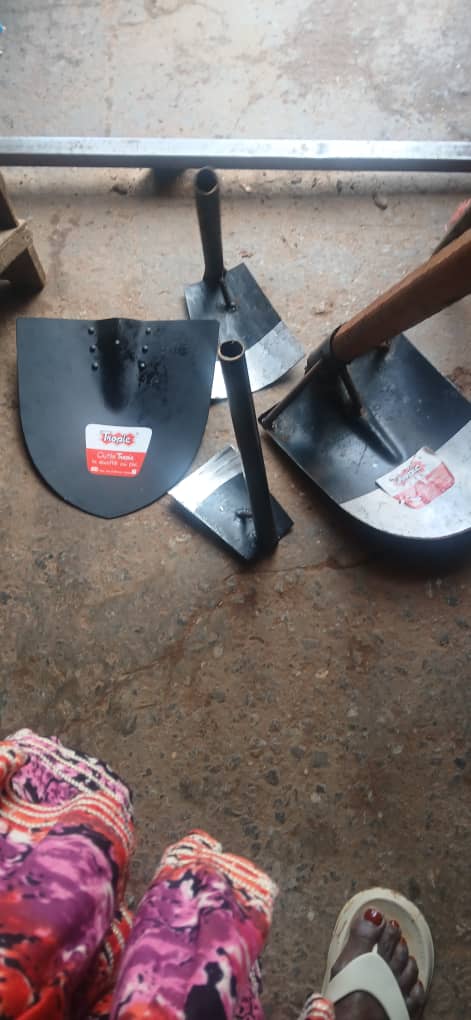
Heavy rainfall delayed transport and limited site access, but we adjusted work schedules to stay on track. Tool procurement also faced delays, which we addressed by sourcing locally and planning for future supply needs.
Next Steps:
Finalise the Pre-Design Questionnaire
Complete participant enrollment
Prepare orientation materials for the October cohort
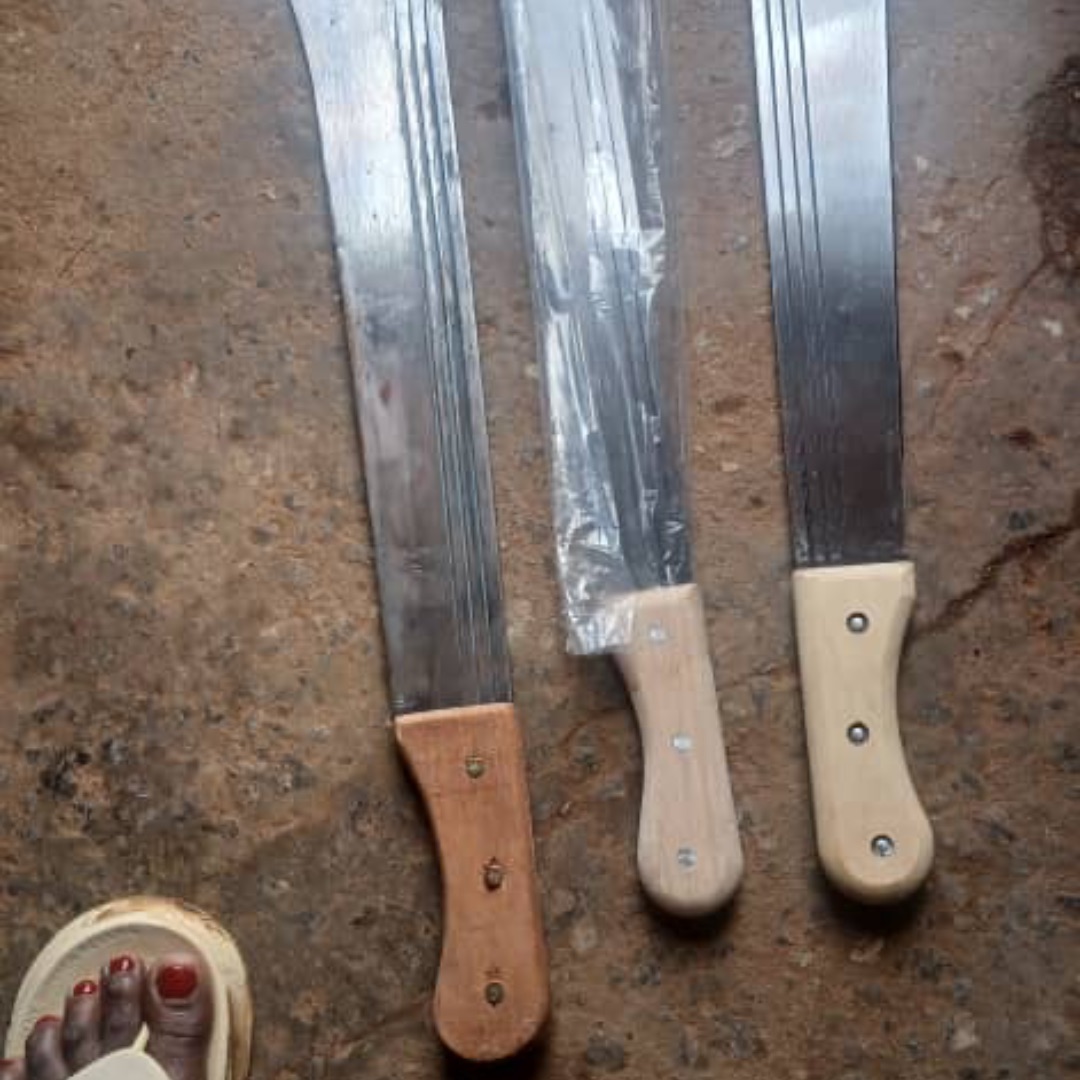
Item | Quantity | Unit Price (XAF) | Total (XAF) | Total (£) |
Machetes | 4 | 5,500 | 22,000 | £28.85 |
Large hoes | 2 | 4,500 | 9,000 | £11.80 |
Small hoes | 2 | 3,500 | 7,000 | £9.17 |
Transportation | - | - | 10,000 | £13.12 |
Total | 48,000 | £62.94 |
Pilot kicks off as funds are successfully received

Posted 6 Oct 2025
I’m writing to confirm that the funds (1,557,182 XAF) have been successfully received, as per the attached receipt (MTCN: 2547542014).
The process was smooth, and I’m grateful for your swift support in making this happen.
With the funds now secured, the first phase of the project officially kicks off today.
The receipt is attached for your records. Please let me know if you need any additional documentation or further details.
